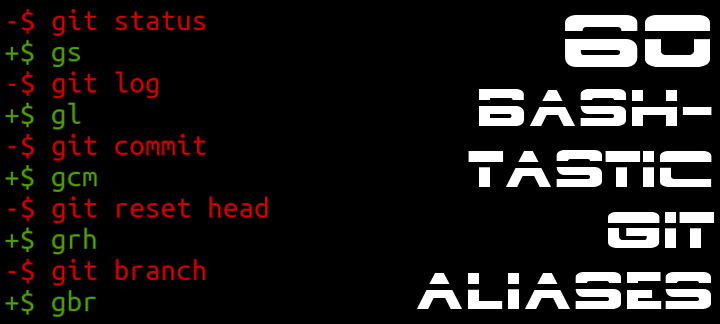Design Patterns / Dev / Ruby
Dependency and Load-Order Management Using the Module Factory Pattern

At last year's RubyConf in San Diego, Craig Buchek gave a presentation entitled Ruby Idioms You're Not Using Yet focusing on some of Ruby's under-utilized and emerging idioms. In this post we'll discuss one of those idioms, an idiom Craig appropriately calls Module Factory. In particular, we'll explore the using a Module Factory as a pattern for dependency and load-order management.
Hey! Who you callin' an idiom?
For those unfamiliar with idioms or, more likely, unfamiliar with what idioms refer to in the context of a programming language, Craig presents a number of different perspectives, my favorite of which is:
A style or form of expression that is characteristic of a particular person, type of art, etc.1
Craig also offers his own perspective, which I think helps clarify and distill this concept further:
A way in which we normally express ourselves in a language.
Though I think this definition captures the idea nicely, I think there's a pearl of enlightenment to be found in reducing the concept down to its roots:
Late Latin idioma, idiomat-, from Greek, from idiousthai, to make one's own, from idios, own, personal, private.2
I find this etymology charming because while formal definitions tend to focus on existing patterns of language belonging to specific communities and cultures, the origin of the word hints at a deeper essence that leads ultimately to the cradle of all idiomatic expression: idioms are an emergent behavior of the efforts of individuals and communities to make a language their own.
Idioms in Ruby
In terms of Ruby, let's take a look at a couple of concrete examples of common Ruby idioms juxtaposed with their less idiomatic counterparts to give ourselves some grounding. Hopefully you'll agree that within each example, each variation gets further and further from how you'd expect to see an idea expressed in Ruby.
Conditional assignment:
# Idiomatic Ruby
a ||= b
# Less idiomatic
a || a = b
# And lastly, please don't do this
a = b if a == nil || a == false
Sequential iteration
# Idiomatic Ruby
5.times { |i| puts i }
# Less idiomatic, though more performant
i = 0
while i < 5
puts i
i += 1
end
# And finally, the dreaded `for` statement
for i in 0..4
puts i
end
Hopefully, these examples give you a good idea of idioms in Ruby, but if not, I'd encourage you to watch Ruby Idioms You're Not Using Yet, as it provides more examples which may help to further elucidate the concept.
On with the show!
Module Factory: An Introduction
The Module Factory pattern as described in the presentation constitutes the use of some variety of Factory Method in place of a reference to a concrete Module when calling extend or include from a Class or a Module. This is a fairly technical description, so let's take a look at the example the presentation uses to demonstrate this pattern. This example comes from the README for the Virtus gem:
class User
include Virtus.model(:constructor => false, :mass_assignment => false)
end
Though it may be unclear what is going on here, if we trust that neither the Virtus docs nor the Ruby docs for Module#include contain an error, we can use a little deduction to piece together what's going on:
- Though the Ruby docs aren't totally explicit about it, Module#include will raise an error unless given one or more Modules. From this we can infer that Virtus.model must be returning one or more Modules.
- A little trial and error in irb further uncovers that though Module#include supports being invoked with multiple Modules, these Modules cannot be provided in an Array, but must be normal method arguments (or in the case of an Array, must be exploded with the splat operator into normal method arguments). Since the Virtus docs don't use the splat operator, we can further narrow our inference to deduce that Virtus.model must be returning a single module.
Now that we have a clearer understanding of what's going on in this example, it becomes easier to see how it fulfills our definition of a Module Factory: Instead of referencing a concrete Module, Module#include is invoked with the result of invoking the Virtus.model method. Furthermore, we've deduced that Virtus.model must return a Module of some sort and given the arguments it takes, it's safe to assume there's some sort of factory logic going on inside. In fact, this Module Factory allows the including class to cherry-pick a subset of Virtus' model extensions and include only those selected modules.
Alright! Not so bad, right? Now that we've got one Module Factory under our belt, let's take a look at how the Module Factory patten can help with dependency management and load ordering.
A job for refactoring
In order to provide some context for our discussion, let's start with some example code that I think could benefit from a refactoring to use the Module Factory pattern. For the sake of brevity, this code is non-functional and skips many of the details that don't impact our particular interests. That said, the code below should have a familiar flavor to anyone who has worked with an asynchronous job framework in the past, such as Resque, Sidekiq, Backburner, or Rails' ActiveJob.
The example code outlines the skeleton of a job class that performs some undefined unit of work. For those unfamiliar with any of the job frameworks I mentioned above, the typical usage pattern for such a framework tends to involve subclassing a class provided by the job framework which encapsulates and handles most of the required behaviors of a job. In the example below, this role is filled by the fictitious class JobFramework::Job.
Generally, by subclassing a class like JobFramework::Job, the subclass agrees to an interface contract that typically requires the subclass to implement a perform method at the instance level. This pattern is also followed in the example below, as can be seen by the perform instance method on the ImportantJob class.
One final point worth discussing before getting into the example is that the job classes provided by many job frameworks tend to provide an around_perform method hook or similar functionality to allow for adding middleware-type behavior around job execution in a generic, unobtrusive way. The example below also borrows this pattern, however it can be inferred that JobFramework::Job provides this behavior in a very naive manner that relies heavily upon the class hierarchy and repeated calls to super.
OK, that should be enough background, on to the example!
important_job.rb
class ImportantJob < JobFramework::Job
# NineLives must be included before ExceptionNotification,
# otherwise up to nine alert emails will be sent per failed
# job and in many cases, exception notifications will be
# sent when the job didn't actually fail!
include NineLives
include ExceptionNotification
def perform(*args)
# Important work
end
end
job_extensions.rb
module NineLives
def around_perform(*args)
retry_count = 0
begin
super
rescue TransientError
if retry_count < 9
retry_count += 1
retry
else
raise
end
end
end
end
module ExceptionNotification
def around_perform(*args)
super
rescue
# dispatch an email notification of the exception
end
end
Here's a quick rundown of what we can expect the lifetime of an execution of the ImportantJob class to look like:
- Some code somewhere else in the codebase calls ImportantJob.perform. This class level perform method is provided by JobFramework::Job as a convenience method to enqueue an ImportantJob to be completed asynchronously.
- Elsewhere, a worker process, also typically running code provided by the job framework, pops the job off of the job queue and instantiates a new instance of the ImportantJob class with the provided arguments. The internals of the worker process then take steps to execute the job which causes the around_perform method of the instance to be executed. Normally, the invocation of around_perform would simply cause ImportantJob#perform to be executed, however, since we've overwritten around_perform a couple of times, the behavior in the example is not so simple. The first version of around_perform that will be executed, perhaps counterintuitively, is the version from the last module we included in ImportantJob, ExceptionNotification.around_perform.
- ExceptionNotification.around_perform immediately calls super, but includes a rescue block that catches any errors that bubble up and, hypothetically, dispatches email alerts about those exceptions. The invocation of super triggers the around_perform method from the first module we included in ImportantJob, NineLives#around_perform.
- NineLives#around_perform is more involved, but its goals are pretty simple: Similar to ExceptionNotification.around_perform, it calls super almost immediately but adds some special error handling that catches errors of the TransientError class. The error handling will retry the call to super up to 9 times if the TransientError exception continues to occur. After 9 times, the error will be raised up to ExceptionNotification at which point an email should be dispatched. The call to super this time around invokes the original around_perform method, JobFramework::Job#around_perform, which as we discussed earlier, invokes ImportantJob#perform.
Now that we've got a solid understanding of the example job, let's see how using the Module Factory pattern could benefit this class.
What's wrong with a well written comment?
You may already have an intuition for where we should begin our refactoring to introduce a Module Factory, but if you don't that's fine too. Personally, I'm inclined to start with the very first line of the ImportantJob class. No, not include NineLives. The honking four line comment that explains why the NineLives module must be included before the ExceptionNotification module. In a small enough codebase, the current form of ImportantJob might be fine, but if that codebase is likely to grow, or if the codebase is already of reasonable size, I'd argue that the comment and the rigid load-order are bad news.
You may have your own arguments for or against the current implementation, but here are my arguments against:
- That whopper of a comment is going to be repeated in every other job class that uses both the NineLives and ExceptionNotification modules (and if it's not, it should be). Trust me, I've seen it happen. Not only is this a violation of DRY, but because it's a comment it's pretty likely to mutate and/or deteriorate with each subsequent duplication. Eventually this leads to a situation where a newcomer to the code base doesn't know which version of the comment is accurate, or, alternatively, you end up with some job classes that tag include NineLives simply with "Must be included before ExceptionNotification" and no additional explanation. After this reduction, the comment starts to disappear entirely.
- Without the comment, there is no other clue that there is a load-order dependency between these two modules. Obviously, this is why the comment was added, but a comment can't help the situation where a job class that already includes NineLives now needs to include ExceptionNotification, or vice versa. If the dev making the change is lucky enough to have seen the comment elsewhere in the codebase, or another dev happens to catch the issue in a code review, maybe you can avoid a Spam dinner, but if not, it's Spam-a-lam-a-ding-dong until the next deploy goes out.
- What happens when another load-order dependency is added with the inclusion of a new module? Another giant comment in every class that needs some combination of the three modules? One giant comment that tries to encompass all the permutations in a generic fashion? How would you feel if the purpose of the ImportantJob class was to perform a payment on a loan and the newly included module was added to lower someone's credit score every time an exception bubbled out of NineLives#around_perform? It's a bit of a stretch, but don't think that financial systems are immune to these situations, and I certainly hope they're using a better design than repeated comments.
One could certainly make the argument for handling this issue by introducing another module to encapsulate the load-order dependency, but in my experience that doesn't actually solve any of these problems, but instead, it just moves the problems into other parts of the codebase or mutates them into slightly different issues.
While we could explore alternative solutions for handling this situation all day, let's move on and get an idea of how a Module Factory could be used to address all of the concerns I've raised.
A Module Factory for job extensions
Before we look at how me might go about implementing a Module Factory to address the issues I raised above, let's take a look at what ImportantJob might look like after we refactored it to use a Module Factory.
class ImportantJob < JobFramework::Job
include JobExtensions.select(:exception_notification, :nine_lives)
def perform(*args)
# Important work
end
end
We have to make some assumptions for now, but hopefully you'll agree that this is already a significant improvement.
We can't yet make a determination on the ultimate fate of the comment because it's no longer included in ImportantJob, but this by itself is a good sign. Realistically, I don't think there was ever hope of going completely comment free, but, at least for the moment, things have a much DRYer feeling.
Otherwise, there's still no hint that a load-order dependency exists somewhere, but given the order of the arguments to JobExtensions.select, we can hope it doesn't matter anymore. If the order of the arguments truly doesn't matter, than this also helps the situation where someone wants to add ExceptionNotification to a class that already includes NineLives, as it seems like they could just add the snake-cased name of the extension to the list of selected extensions and continue on their way. The same applies for any new extension that might be added in the future. In fact, the use of the snake-cased names actually involves less coupling than the original version because though the snake-cased names match the module names in this case, there really is no need for the module name and the snake-cased name passed to the factory method to match. This means that the module implementing :nine_lives could change to an entirely different module with fewer repercussions to the codebase.
So far, so good. So what kind of sorcery is required to make this interface possible? Behold! The JobExtensions module:
module JobExtensions
def self.select(*selected_extensions)
Module.new do
# NineLives must be included before ExceptionNotification,
# otherwise up to nine alert emails will be sent per failed
# job and in many cases, exception notifications will be
# sent when the job didn't actually fail!
if selected_extensions.include?(:nine_lives)
include NineLives
end
if selected_extensions.include?(:exception_notification)
include ExceptionNotification
end
end
end
end
Maybe a little magical, but certainly not sorcery, in fact it looks a lot like we took the comment and includes from the former version of ImportantJob, added some conditional logic, and wrapped all that in a Module.new block. What's going on here?
I suspect I don't need to explain the internals of the block, but Module.new is definitely worth taking a closer look at on its own.
Module.new, is the more metaprogramming-friendly version of your standard module declaration using the module keyword. In fact, when used with a block, it's even more similar to a standard module declaration than might be obvious because in the context of the block the target of self is the module being constructed. This behavior is what allows us to make normal calls to include without having to use an explicit receiver or having to call send.
For our particular purposes, Module.new does offer one advantage over the module keyword worth mentioning. Because Module.new uses a block, a closure is created that allows us to reach outside of the block and access the list of selected_extensions while building the new module. Access to this list is crucial to our Module Factory's ability to build a customized module on demand. Without access to the list we'd have to figure out another way to assemble the desired module, which is certainly doable, but would be less pleasant to look at and would require using send to circumvent the generated module's public access rules.
Other than the call to Module.new, I expect everything else in this factory method should make sense. We've found our missing comment and can be fairly confidant that in this form it's unlikely to be repeated. If it is repeated in the future, it will likely be a modified version that documents the load-order gotchas of a different extension that this Module Factory supports. While there is probably a better way to document the specifics of this particular load-order requirement, I'm much less concerned with many similar comments documenting similar behavior inside a particular method than I am with the same spread all across the codebase in any number of unaffiliated jobs.
Before you get too excited: A couple of trade offs
Though the Module Factory we've built certainly helps deal with handling the load-order logic in a DRY fashion, there are a couple of potential trade offs that I should mention. These issues can be addressed, but I won't go into great detail about how to address them. The good news, though, is that both trade offs are solved by pretty much the same code.
The first trade off is that generating a module dynamically like we did above produces a more anonymous module than you might be used to seeing if you usually create modules using the module keyword. For example, here's the fictitious ancestry of the ImportantJob class:
ImportantJob.ancestors
# => [
# ImportantJob, #<Module:0x00000000e39c48>,
# JobFramework::Job, Object, Kernel, BasicObject
# ]
That funky Module between ImportantJob and JobFramework::Job is our generated module. Though we've handled the load-order issue in a more robust fashion, we've obscured the class hierarchy which makes it harder to find information about the class via interrogation or examination.
To get some insight into the second trade off introduced by the Module Factory pattern, let's pretend we've created another job class, ReallyImportantJob, that is an exact duplicate of ImportantJob, except named differently. What does the class hierarchy for ReallyImportantJob look like?
ReallyImportantJob.ancestors
# => [
# ReallyImportantJob, #<Module:0x00000000d4a058>,
# JobFramework::Job, Object, Kernel, BasicObject
# ]
What may not be clear from this output is that though the two job classes are made up of the exact same code and modules, each generates its own special module when the JobExtensions.select factory method is called. This can be seen in the output above in that the each of the generated modules is identified by a different memory address. This might not be the end of the world in a small codebase, but it should make it clear that every class is going to generate its own version of the module, even if one matching the requested requirements already exists. This is obviously inefficient in terms of time and memory, but it also adds another complication to understanding a class by interrogation or inspection because though another dev might expect the class hierarchies of ImportantJob and ReallyImportantJob to include the same modules, they don't, but they do, but they don't.
So what's the solution? Well, it turns out both issues can be solved by dealing with some naming issues. In terms of the first trade off, the anonymous module, Ruby uses an anonymous name because we never assigned the module to a constant. This is one of the implicit benefits of the module keyword: you assign the module to a constant at inception. So, if we can come up with a way to generate a name for the generated module, all we need to do is assign a constant with the generated name to point to the generated module and Ruby will use that name to refer to the generated module.
Though it's not obvious, generating a name also helps us to address the second trade off of generating a new module every time the factory method is invoked. A name helps solve this problem because if we can generate a name that uniquely identifies the contents of a generated module and assign the appropriate constant, we can also check that constant in the future before generating a new module. If the constant is defined, we return the previously generated module, if not, we generate a new module and assign it to the constant.
In terms of our example job, the actual implementation is left to the reader as an exercise, but generating a name that uniquely identifies each generated module could be as simple as creating a string from the sorted, title-cased collection of extensions that are used in the module being named. Title casing is important for readability, consistency, and so Ruby will accept the name as a constant.3 Sorting is also important because, at least in the case of our example, we don't want the order of the arguments to change the name of the class being created because whether :exception_rety is passed in before :nine_lives, or vice versa, both invocations should generate and refer to the same module. This naming pattern still has some problems because it is still unclear what the module does, but it is at least a little better than the module being identified by its raw memory address.
Closing thoughts
Though it may not feel like it, this post has really only scratched the surface of the power and potential of the Module Factory pattern. Though we've discussed how it can be used to improve code readability, maintainability, reliability, and flexibility, there's really a lot more opportunity out there. And so, rather than summarize what we've covered in this post, I'll leave you to ponder these possibilities:
- As evidenced by Kernel#Array and Kernel#Integer Ruby doesn't require method names to start with a lowercase letter. How might a method with a title-cased name be used to compliment the Module Factory pattern? Are there trade offs that come with this type of naming convention?
- Ruby method names don't need to be words at all, take for example Hash::[]. How might an operator style of method name pair with the Module Factory pattern?
- How else could the power of a method call be leveraged for Module Factory awesomeness? What magic could be yielded (pun intended!) by a factory method that takes a block? How might keyword arguments, Hash arguments, or splat arguments be leveraged in combination with a Module Factory?
- If you've ever used a framework that uses dependency injection like Javascript's AngularJS, then the examples above may have caused your Spidey sense to tingle. How might the Module Factory pattern be used for dependency injection in Ruby?
-
Source: Merriam-Webster ↩
-
Source thefreedictionary.com ↩
-
A third-party library like ActiveSupport can make the work of title casing the string trivial. ↩


